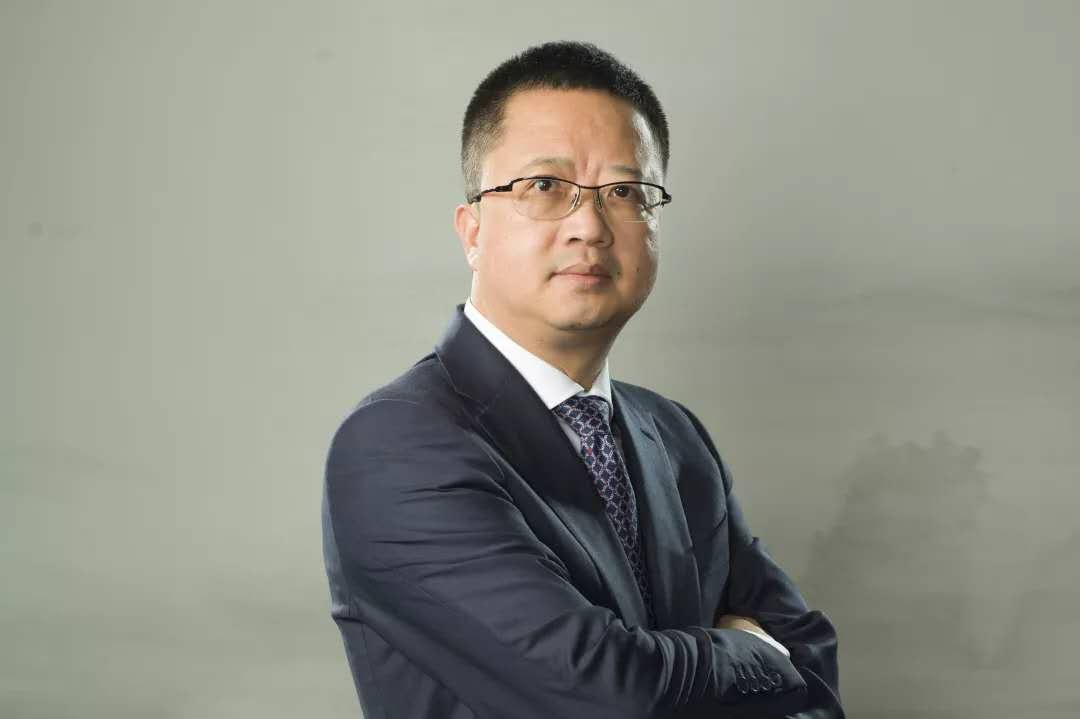On Apr.18, 2020, Fosun Co-founder and PlatON Chief Advisor Mr. Xinjun Liang was invited to give a speech on Epidemic Economyand the significant changes after the global epidemic in Morning Whistle, and interviewed by Morning Whistle Group founder & CEO Mr. Yunfan Wang.
Notable Highlights of the Interview
1. How Do You Think about the Opinion that the Globalization is Coming to an End? Is the Global Integration of Trade, Investment and Supply Chain Meant to be Reversed?
Mr. Liang: Good question, it is similar to the hot topics such as the Sino-US disconnection on supply chains, de-sinicization, etc. Recently, a research from Morgan Stanley shared the opposite opinion against the above question, doubting that the de-sinicization nd the acceleration of the disconnections of Sino-US, China-Euro and China-Japan. The research said that the disconnection on supply chain will be slow down during the outbreak of COVID-19 because the enterprises especially the transnational corporations are facing huge fiscal problems, thus, they need to keep the cash, deduce the public burden of debt, increase new production capacities, and reduce and even stop the capital expenditure of increased production capacities, just like what the airlines have done.
I agree with the analysis of Morgan Stanley. During the outbreak of COVID-19, the disconnection of supply chain, de-sinicization, etc. are just the clamor from politicians instead of the enterprises’ actual intentions. And the outbreak of COVID-19 even provides 3 quarters for China to optimize its business environment, retain the foreign merchants, which is a period of previous time for both Chinese government and the enterprises.
There have been signs of global reversion such as the disconnection and migration of supply chains, and the de-sinicization, etc. From the China-United State trade war, we can see that many manufacturing companies located in China, including the transnational corporations of which the investors come from Euro, U.S and Japan, the Chinese private enterprises and state-owned enterprises, have transfer part of their manufacturing businesses from China to the highly potential Vietnam and Thailand.
If you ‘ve ever taken a closer look at the economic activities taken place in Vietnam and Thailand, you will find that many Chinese firms and the firms migrate from China finished their last working process there. Earlier on, Prof. Zhan Shi from Foreign Affair Academy inspected Vietnam. He found that only the last working process of manufacturing is finished in Vietnam, which means there is limited gold content in Vietnamese manufacturing. I’m not really agree with this opinion. Some companies there finish the work similar to the total integration finished in China. And it not just happened, but has kept for a while.
2. What’s the Development Trend of the Next-generation Globalization, if It’s Possible? And What’s the Force to Drive It, and What are the Characters of It?
Mr. Liang: In my opinion, due to the disagreement on overseas marketing, the importance of domestic market will come first. There are many strengthens in domestic market, among which, the development of the mobile internet is the greatest advantage. We have the largest internet population in the world, which contribute on the quarantine policy and service during the outbreak of COVID-19, such as the health code. Frankly, it’s a leading government service and impossible for other countries to catch up.
This kind of online government service, the fast-growing online education and remote work, the developed online shopping, the gradually developed online finance, the greatly developed online game, AI, blockchain and the DC/EP, etc. can enhance the strengthens of Chinese online service. Recently, New Infrastructure Construction has been a hot topic. If it’s based on the strengthens of online service, it’s worth a try.
Apart of that, I think WTO needs to improve itself. During the last Obama Administration, Obama dived into TPP (Trans-Pacific Partnership). Later on, Trump stopped it in his presidency. Obviously, Trump is not satisfied with WTO in addition to WHO. The eWTO advocated by Jack Ma should be a good propose for the improvement of WTO. Besides, the trading system based on the blockchain crosses the threshold of law, execution, currency and tax, in my opinion, is an innovation trend in the next few years.
3. Does that mean Digital Economy Will Play a Leading Role in the Next Globalization?
Mr. Liang: Yes, even though Southeast Asia and South Asia are keys to the next globalization, they are separated. And the currencies of the members in ASEAN are different from each other. The logistic as well as the financial capital flow are limited, result in the limit of employment. In a word, the ASEAN is split and has no interconnected market due to the limits.
Concerning the interconnected market, first of all, there should be a single currency, such as Asian Monetary Unit. However, there is a long road ahead to form the Asian Monetary Unit. It took such a long period of time to form the Euro. Secondly, would it be possible to form an Asian union similar to the European Union in which only one country in the union control the foreign affair and military, I think it’s hard and even impossible.
However, with blockchain, there won’t be state sovereignty and currency issues. Under such circumstance, deal with all trading as transaction which could be handled by smart contract. The smart contract serves as WTO to provide the transnational credit, and there won’t be disagreements, counts and intellectual property protection as well. Thus, in my opinion, electronation, mobile internet-enabled and the blockchain-based IoT would bring the next-generation globalization.
4. What’s the New Challenge on the Overseas Investment and Acquisition Facing the Chinese Enterprises? What’s the Next Trend of the China’s Overseas Investment? Where is the Next Overseas Market Especially Emerging Market of Acquisition and Investment?
Mr. Liang: I would like to talk about what we can invest in the overseas market, what should Chinese capitals acquire and invest in the overseas market, and what could Chinese acquisition fund such as PE fund and VC fund invest in the overseas market.
First of all, I would highlight that the common trend for the mainstream countries and mainstream market is the flexible currency and finance policies. Thus, the deficit of the mainstream countries will be reduced to the great extent, and what challenges Chinese capital are not the competitors in the market as the credit of these countries may be useless. Secondly, China has leading technology strengthens, such as AI and blockchain. The mobile internet could be migrated to IoT, and then blockchain will rise based on IoT. All of them have great potentials on standing ahead in the market growth which could leave the m2 behind. Keep in mind, the competitor of Chinese capitals is government, just tread M2 as the government rather than simply working hard to be the top player in the market.
To leave M2 behind, you should choose the right field. For example, in the consumption sector, education and healthcare has no problem with that; and for technology platform, AI will surely make it; and the in the data asset field, data asset is not only about mobile internet, but also public utilities, heathcare and other fields could benefit from the data capitalization, all of them should be bullish about.
In terms of emerging field, China usually compete with Europe and America. From now on, Southeast Asia and South Asia should be highly valued in addition domestic market for Chinese enterprises. Thus, Chinese enterprises should plan their market and investment in Southeast Asia and South Asia. Plus, the VC and PE of Southeast Asia and South grows very fast. China used to be the top 1 in VC and PE growth around the globe in the past 20 years, but has been the second now. In the next 2 decades, Southeast Asia and South Asia will be the next China. The aging and insufficient labor force issues that would challenge China could be fixed from the Southeast Asia and South Asia, and we should expand our market there. For the expansion of high growth investment opportunities, we also could find in Southeast Asia and South Asia in addition to the domestic market.
For Chinese market, the most importance and valuable thing is to complete the supply chain to prevent the supply chain from being disconnected.
5. How Do You Think about the Logistic of New Infrastructure Construction? Is It a Good Investment Trend?
Mr. Liang: The traditional strengthens of China are cheap labor, world’s most complete supply chain, prominent entrepreneurs and the most efficient government. Recent years, we have the world’s largest middle-class family consumption market and the world’s largest internet market, which are the new strengthens of China.
Thus, middle-class family consumption is what you must pay close attention to, and it’s an obvious strengthen in either the past few years or the next eight to ten years. Besides, China has the overwhelmingly dominated the mobile internet market, the mobile internet and AI and blockchain developed based on the mobile internet is the most competitive strategy power in the world undoubtedly. Hence, mobile internet, AI+ and the period from mobile internet to IoT and blockchain, are all worth of the investment. Either the infrastructures or Apps are ideal options to invest on.
6. Bitcoin, treated as the digital golden, is expected to be a safe haven asset which can maintain and even enhance its value during the economy depression. How Do You Think about the Bitcoin crash during the outbreak of COVID-19? Are There Any Assets Worth of Investment?
Mr. Liang: First of all, never regard the development as token speculation. As for the DC/EP, in my opinion, what matter are the development of smart accounts and smart token. I haven’t noticed the business practice of the DC/EP, I guess it has the smart contact feature. Only if an asset has the smart accounts plus smart token, it can complete the transition of digital economy and facilitate the smart economy, smart finance and the ecosystem. Thus, I would like to highlight that cryptocurrency is just a part of it and can’t replace all smart token.
Bitcoin doesn’t have smart contract feature, but valuation instead. Thus, it can’t complete the trading by itself. However, there are around 70M users and $200B market value of bitcoin, thus, it has a quite good user base. The most attractive part of bitcoin is that it deflates which will halve every 4 years. The merchants who provide the services for the settlement and payment of bitcoin, namely miner, which balance their cost by rewarding themselves through the tokens generated automatically. The reason why golden is able to maintain and enhance its value is that golden can’t be man-made and has very low yearly mining rate. Thus, bitcoin, with its convergence mechanism, has huge value and is attractive in the long run.
As for the bitcoin crash during the outbreak of COVID-19, in my opinion, it’s similar to the crash of golden. The key is that both bitcoin and golden has large circulation because a vast range of traditional investors get involve in the market of bitcoin and sell the assets that can be sold easily to withdraw their capital. During the outbreak, the stock market, be it HK stock, America stock or A-share, also crashed. Thus, the bitcoin crash is just a normal occurrence. We should be more pay attention to the long-term potential rather than the short-term crash.

